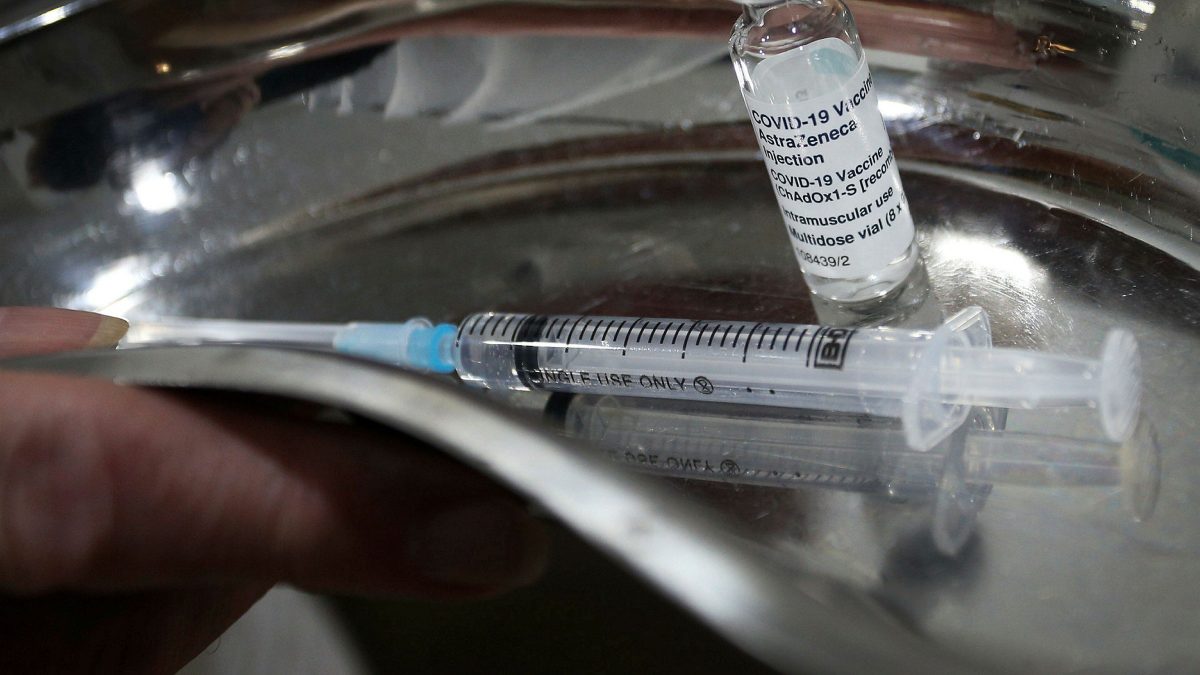LONDON, (Reuters) – AstraZeneca will release the most up-to-date results from its latest COVID-19 vaccine trial within 48 hours after U.S. health officials publicly criticised the drugmaker for using outdated information in a press release earlier this week.
AstraZeneca said results published yesterday were based on an interim analysis of data through Feb. 17. The company said today it would “immediately engage” with the independent panel monitoring the trial to share its primary analysis using the most up-to-date efficacy data.
The move comes after the National Institute for Allergy and Infectious Diseases said the monitoring board charged with ensuring the safety and accuracy of the trial had expressed concern that the company may be giving an “incomplete” picture of the shot’s effectiveness.
“This is likely a very good vaccine,” Dr Anthony Fauci, U.S. President Joe Biden’s COVID-19 medical adviser and National Institute of Allergy and Infectious Diseases (NIAID) director, told ABC News’ “Good Morning America” programme. “If you look at it, the data really are quite good but when they put it into the press release it wasn’t completely accurate.”
The public rebuke marks the latest setback for the vaccine, which was initially hailed as a milestone in the fight against the COVID-19 pandemic but which has been dogged by questions over its effectiveness and possible side effects.
AstraZeneca said it had reviewed the preliminary assessment of the primary analysis and found it to be consistent with the interim report.
Its shares were down over 1% in London trading.
According to the data AstraZeneca made public yesterday the vaccine, developed with Oxford University, was 79% effective in preventing symptomatic illness in the large trial that also took place in Chile and Peru. It was also 100% effective against severe or critical forms of the disease and hospitalisation, and posed no increased risk of blood clots.
The renewed doubts about the vaccine’s efficacy coincide with its rollout in dozens of countries worldwide and clouds the timeline for its emergency use authorization in the United States.
“This is indeed an extraordinary act. The negative reports about this vaccine do not stop, although my assessment is that it is well tolerated and safe, but clearly less effective than the two mRNA vaccines,” Peter Kremsner, from the University Hospital in Tuebingen, Germany.
Rival vaccines from Pfizer and Moderna that use so-called mRNA technology produced efficacy rates of around 95% each, far above the 50% benchmark set by global regulators.
The DSMB is organised by NIAID, and its role is to provide study oversight and evaluate clinical data to ensure safe and ethical conduct of the study. Fauci heads the NIAID, which is part of the National Institutes of Health.
DOUBTS RAISED
AstraZeneca’s COVID-19 shot has faced questions since late last year when the drugmaker and Oxford University published data with different efficacy readings due to a measurement error.
Later analysis suggested the dosing interval rather than the amount of dose administered was responsible for the difference.
Confidence in the vaccine took a further hit this month when more than a dozen countries, mostly in Europe, temporarily suspended the shot after reports linked it to a rare blood clotting disorder in a very small number of people.
The European Union’s drug regulator said last week it was safe but an opinion poll on Monday showed Europeans remained sceptical about its safety.
The latest data, which has yet to be reviewed by independent researchers, was based on 141 infections among 32,449 participants.
Analysts had noted AstraZeneca’s achievement of producing strong trial data against a backdrop of more infectious variants spreading in the United States and other countries.
Stephen Evans, a pharmacoepidemiology professor at London School of Hygiene & Tropical Medicine, said the up-to-date data request may have to do with efficacy readings from recent infections which may include new variants and thus lower protection rates.
“The other vaccines may also show such reduced efficacy and we don’t know by how much. It does not leave me concerned particularly unless they had found a safety issue that was being hidden, which does not appear to be the case.”
The AstraZeneca vaccine is seen as crucial in tackling the spread of COVID-19 across the globe because it is easier and cheaper to transport than rival shots.
It has been granted conditional marketing or emergency use authorization in more than 70 countries. Many countries are relying heavily on it to end the pandemic, and several state leaders have taken the shot to boost confidence in the vaccine including South Korea’s President Moon Jae-in who received it on Tuesday.










